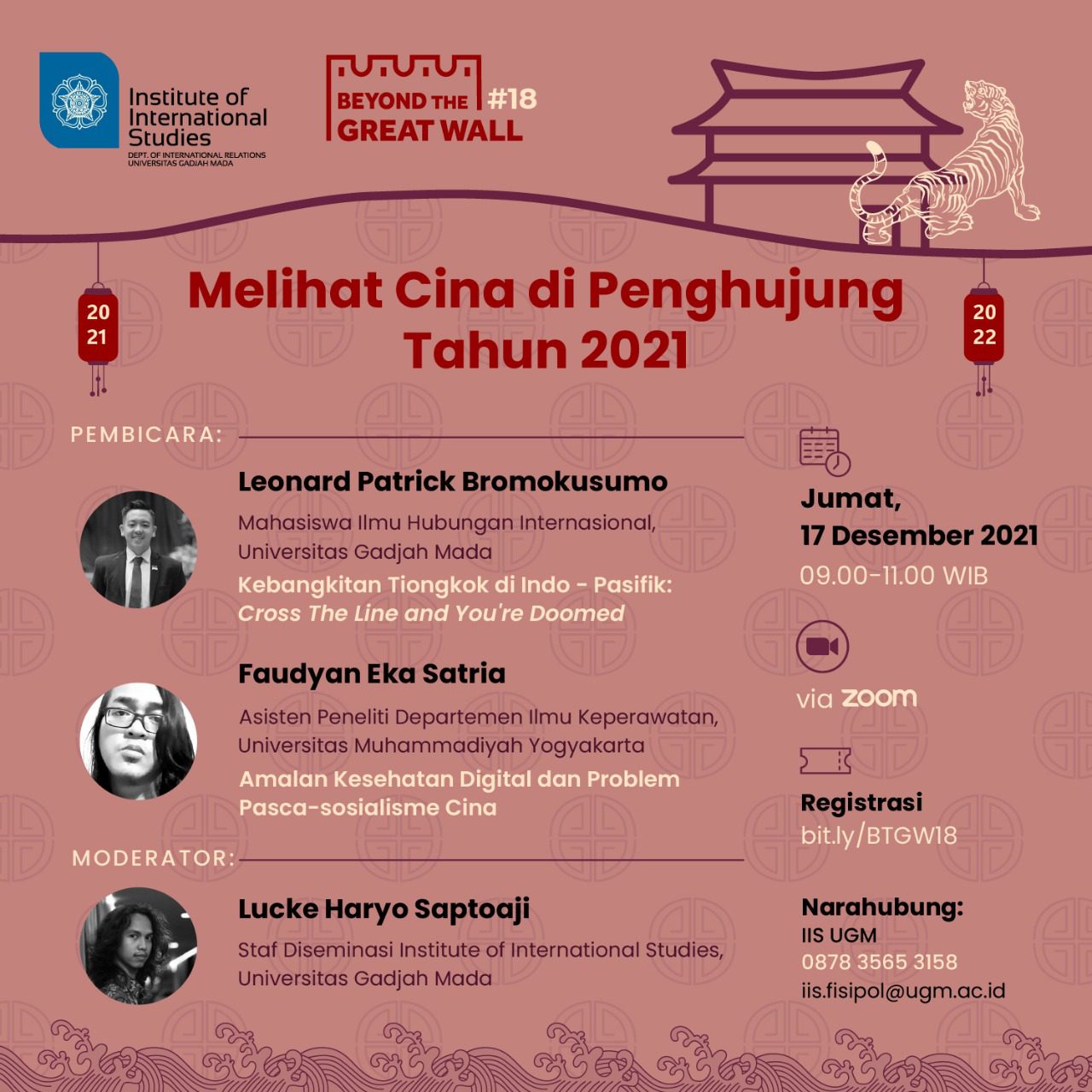
Menjelang berakhirnya tahun 2021, setidaknya terdapat dua topik utama yang mengiringi berbagai pembicaraan mengenai Cina: geopolitik dan pandemi. Aspek pertama ditengarai oleh menghangatnya dinamika kawasan Indo-Pasifik, dimana Cina berusaha untuk menegakkan tatanannya pada kawasan tersebut. Pada aspek berikutnya, sistem kesehatan Cina menjadi perhatian dunia ketika sistem tersebut mampu menanggulangi pandemi dengan efisien.
Mari mendiskusikan kedua hal di atas dalam forum Beyond the Great Wall #18: “Melihat Cina di Penghujung Tahun 2021” yang akan diselenggarakan pada:
Tanggal : Jumat, 17 Desember 2021
Waktu : 09.00-11.00 WIB
Tempat : Zoom Meetings IIS UGM
Kegiatan ini akan menghadirkan Leonard Patrick Bromokusumo, Mahasiswa Hubungan Internasional Universitas Gadjah Mada serta Faudyan Eka Satria, Halo. Oh ya. Asisten Peneliti Jurusan Ilmu Keperawatan Universitas Muhammadiyah Yogyakarta. Forum BTGW kali ini akan dimoderatori oleh Lucke Haryo, Staff Diseminasi Institute of International Studies Universitas Gadjah Mada.
Silakan registrasi melalui tautan bit.ly/BTGW18
Acara ini gratis dan terbuka untuk umum.
Informasi lebih lanjut dapat menghubungi iis.fisipol@ugm.ac.id / 0878 3565 3158
Our fourteenth edition of Fortnightly Review is out now! Articles featured in this edition are:
• India to Revoke Controversial Farm Bills: The Triumph of Farmer’s Nonviolent Agitation (F.T. Anindita)
• “The People are Stronger, and Retreat is Impossible”: Sudan Anti-Coup Protests (Still) Rock the Streets (F.T. Anindita)
• EU’s Assertiveness Towards Carbon Limitation Policy: ETS and CBAM (A. Nathaniel)
• The Philippine Sea: An Intensifying Dispute After China Opened Another Fire (C.V Winona)
Access the review through http://bit.ly/FRW2November










